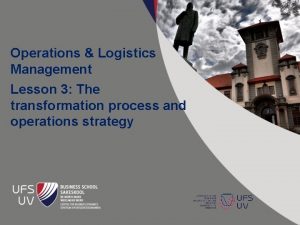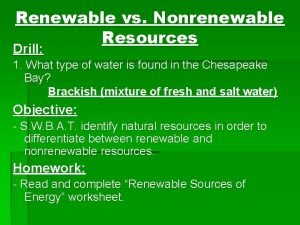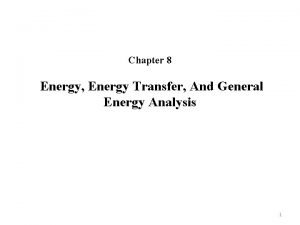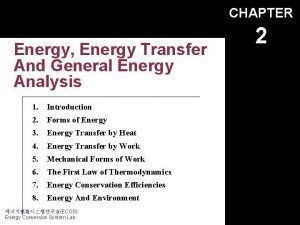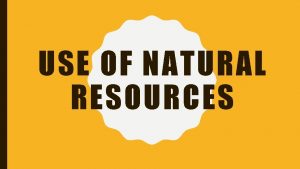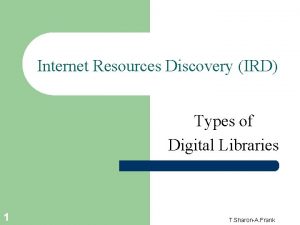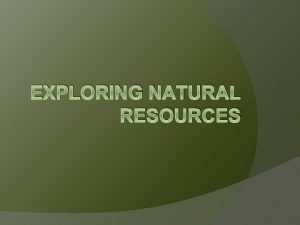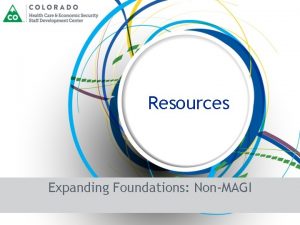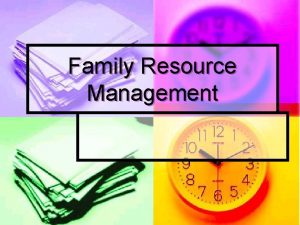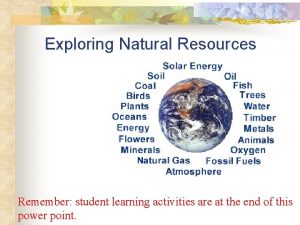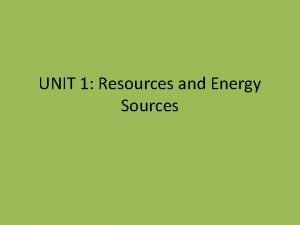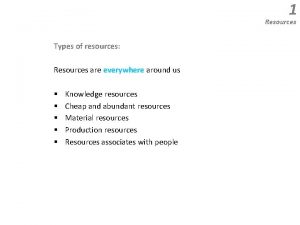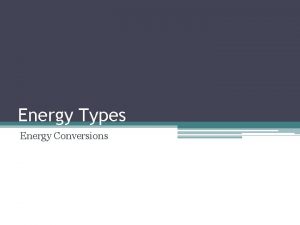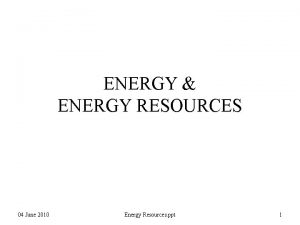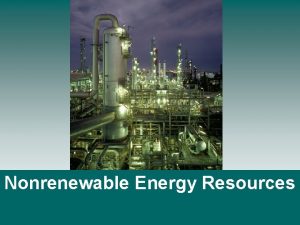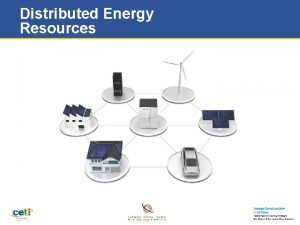Energy resources Energy resources Types of energy resources












- Slides: 12

Energy resources

Energy resources Types of energy resources 1. Solar energy 2. Geothermal energy 3. Hydroelectric energy 4. Wind energy 5. Nuclear energy 6. Chemical energy

Solar energy • The solar panels are used to make use of energy from the sun as they capture heat. • This heat is used to heat water which can be later used for domestic purposes in the house.

Geothermal Energy • the earth buries under its surface areas of hot rocks. • If cold water is pumped through pipes , the heat of the rocks is released to the water which is pumped again to drive the generators or to warm houses.

Hydroelectric Energy • Also known as energy from water • Waterfalls, tidal energy and wave energy • These movements of water can be used to turn turbines and drive generators.

Wind energy • The energy of moving air can be used in : 1. Sailing ships 2. Operating large windmills • The operating large windmills turn turbines and generates electricity

Nuclear Energy • Nuclear fussion takes place in an nuclear reactor and large amount of heat energy is released which is also used to heat water , turn turbines and drive generators

Chemical Energy • The chemical energy is stored in fossil fuels (coal , oil and natural gas) is converted to heat energy when these fuels are burnt. • Chemical energy is also stored in the food we eat.

Renewable & Non. Renewable • Renewable sources of energy are sources that will not run out and are continuously replaced such as solar energy , wind energy , waver energy , tidal energy , hydroelectric energy and geothermal energy. • The trouble is that many of them are unreliable because hey depend on the weather.

Advantages 1. No air pollution 2. They will never run out 3. Don’t damage the environment (except visually) 4. No fuel costs , although the initial costs are high

Disadvantages 1. Limited number of suitable sites 2. They are non-reliable (they don’t always deliver when needed – if the weather isn’t right for example). 3. Require large areas of land or water , so in case of wind power stations for example because large numbers of wind mills are needed, large space is needed which may lead to the damage of natural habitat and visual pollution.

Thank You
 The transformation process in operations management
The transformation process in operations management Fixed and variable resources
Fixed and variable resources Renewable resources vs nonrenewable resources
Renewable resources vs nonrenewable resources Energy energy transfer and general energy analysis
Energy energy transfer and general energy analysis Energy energy transfer and general energy analysis
Energy energy transfer and general energy analysis What are types of natural resources
What are types of natural resources Digital library
Digital library Explain natural resources
Explain natural resources Types of web resources
Types of web resources Examples of resources
Examples of resources Family resources definition
Family resources definition What are fuels used for
What are fuels used for What is non renewable resources
What is non renewable resources
